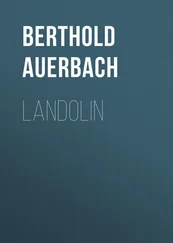Berthold Auerbach - On the Heights - A Novel
Здесь есть возможность читать онлайн «Berthold Auerbach - On the Heights - A Novel» — ознакомительный отрывок электронной книги совершенно бесплатно, а после прочтения отрывка купить полную версию. В некоторых случаях можно слушать аудио, скачать через торрент в формате fb2 и присутствует краткое содержание. ISBN: , Жанр: foreign_antique, foreign_prose, на английском языке. Описание произведения, (предисловие) а так же отзывы посетителей доступны на портале библиотеки ЛибКат.
- Название:On the Heights: A Novel
- Автор:
- Жанр:
- Год:неизвестен
- ISBN:http://www.gutenberg.org/ebooks/33294
- Рейтинг книги:4 / 5. Голосов: 1
-
Избранное:Добавить в избранное
- Отзывы:
-
Ваша оценка:
- 80
- 1
- 2
- 3
- 4
- 5
On the Heights: A Novel: краткое содержание, описание и аннотация
Предлагаем к чтению аннотацию, описание, краткое содержание или предисловие (зависит от того, что написал сам автор книги «On the Heights: A Novel»). Если вы не нашли необходимую информацию о книге — напишите в комментариях, мы постараемся отыскать её.
On the Heights: A Novel — читать онлайн ознакомительный отрывок
Ниже представлен текст книги, разбитый по страницам. Система сохранения места последней прочитанной страницы, позволяет с удобством читать онлайн бесплатно книгу «On the Heights: A Novel», без необходимости каждый раз заново искать на чём Вы остановились. Поставьте закладку, и сможете в любой момент перейти на страницу, на которой закончили чтение.
Интервал:
Закладка:
She was quite excited and asked: "Have many persons been drowned in this lake?"
"Very few; but just below us, there's the body of a young man, twenty-one years old."
"How was he lost?"
"They say he'd been drinking too freely, but I think that he had a sweetheart in the convent over there. It's a good thing she don't know of it."
Irma looked down into the waves, while the old man continued:
"And over there by the rock the trunk of a tree struck a woodcutter and hurled him into the lake. Over there by the flood-gate, a milkmaid, fifteen years old, happened to get into the current where the drift logs were whirling along, and by the time her body reached the lake, every bit of clothing had been torn from it by the logs."
"Don't tell such frightful stories," said the waiting-maid to the man.
Irma looked up at the steep mountains and asked:
"Could one climb up there?"
"Yes, but they'd find it mighty hard work; still, wherever there are trees, man can climb."
Irma looked down into the lake, and then up at the mountains. One can lose one's-self in the world. "How would it be if one were to do so?" said the voice within her.
She stood up in the boat. The old man exclaimed:
"Sit down! there's danger if you stir one way or the other."
"I shall not move," said Irma, and she really stood erect in the unsteady little boat.
"By your leave, the beautiful young lady surely doesn't mean to enter the convent?"
"Why do you ask?"
"Because I'd be sorry."
"Why would you be sorry? Don't the nuns lead a pleasant, peaceful life?"
"Oh, yes, they do; but it is a life in which nothing happens."
As if obeying a higher summons, Irma sat down and immediately stood up again. The boat reeled.
"A life in which nothing happens" – the words touched a chord in her own heart. With her, the pride and strength of youth rebelled against sacrificing one's life in such a manner. It is a life in which nothing happens: whether it be, like her father's, spent in solitary thought, or, like that of the nun's, in common devotion. Are we not placed upon earth so that we may call all our own-come joy, come grief; come mirth, come sadness-a life in which nothing happens is not for me.
Filled with such thoughts she stepped ashore and, while walking up the avenue of lindens that led to the convent, heard the boatman fastening his skiff by the chain.
She inquired for Sister Euphrosyne. The nuns were all at vespers. Irma also repaired to the chapel, in which the everlasting lamp was the only light. Although the service was over, the sisters were still kneeling on the floor. At last they arose, looking like so many ghostly figures stepping out from chaotic darkness.
Irma returned to the parlor, where the portress told her that she would not be allowed to speak to Emma that day, as the sisters were not permitted to receive any communication, or converse with any one, after vespers. Irma, in the mean while, was lodged in the convent.
It was a mild September night. Wrapped in her plaid, Irma sat out on the landing until a late hour. Her thoughts were lost in the illimitable. She scarcely knew what she was thinking of, and yet, as if wafted toward her on the air, she would now and then seem to hear the words: "A life in which nothing happens."
On the following morning, after early mass, Irma was permitted to visit her friend. She was frightened when she saw Emma, and yet it was the same mild countenance, only terribly disfigured by the closely fitting hood that completely covered the hair and gave her face greater prominence.
After the first outburst of grief and sympathy that followed the recital of her sad affliction, Emma at last said to Irma, who had again and again pressed her to her heart:
"Your embraces are so passionate. I know you will never be able to learn humility. You cannot; it is not your nature. But you should acquire equanimity. You could never enter a convent, Irma, and never ought to; or you would long to return to the world. You must become a good wife, but do not imagine that your ideal will ever be realized. Our existence here is fragmentary and full of misery. Life here below is not intended to be beautiful and complete. But, Irma, take heed you do not attempt to loosen a barrier, or to overstep it. Draw back while you are still on this side!"
Emma did not mention the king's name. There was a long pause. Irma felt as if their present surroundings must stifle her.
Emma spoke of what had happened but a few weeks ago, as if decades has passed in the mean while. She discoursed to her friend the strength that lay in continuous devotion; how it lengthened the hours into years full of placid victory over the world. She felt happy that it was possible, even on earth, to lay aside one's name and memories, and lead an existence which, without one steep step, gradually led one to eternal bliss. Emma, however, complained that they would not allow her to take the veil, and resented it as tyranny that she was only permitted to remain as a serving sister without vows.
"It is right that you should not," exclaimed Irma; "I think Bronnen loves you, but he's a man who respects existing facts. His moral character would lead him to repress, rather than manifest, warm feeling toward an affianced bride. He deserves you. I don't say that you should now-How could you? How would he dare? You should remain your own mistress and, after you've spent a year or more in the convent, you may, with that excellent man, lead a life which, if void of transports, will be none the less true and beautiful. All I can say to you now is: Don't fetter your future. No one should take a vow that binds him for life, that, on the very morrow, might seal his lips and make him a slave, a liar, a hypocrite or a deceiver, in his own eyes."
"Irma," exclaimed Emma, "what bad advice are you giving me. Is that the language used at court? Oh, forgive me for speaking to you so! It was the old Emma that did it; not I. Forgive me, I pray you, forgive me!"
She threw herself on her knees at Irma's feet.
"Stand up," said Irma, "I've nothing to forgive. I will speak more calmly. You see, dear Emma, it is fortunate for you that you cannot take the vow. A fearful blow has prostrated you; but if you remain free in your seclusion, your load will gradually lighten and your wounds will heal. Then, should the world call you, you are free to return to it. This should be a place of refuge for you, and not a prison."
"Ah yes," said Emma, with a smile, "you must of course think so, but I-I do not care to see the world again which no longer contains him who was dearer to me than life. You cannot realize what it is to be betrothed on earth, and be obliged to wait for eternal union in heaven. I have prayed God to take my heart from me and banish every selfish desire, and He has hearkened unto me. It is tyrannical to attempt to force our opinions upon others. Do you still remember, Irma, the first time we read the story of Odysseus, and how he had them bind him to the mast so that he might listen to the songs of the syrens and yet not be able to follow them? Do you still remember the remark you then made?"
"I've quite forgotten it."
"'Much-bepraised Odysseus,' said you, 'was a weakling, not a hero. A hero must not suffer himself to be bound by external fetters; he must resist everything by his inner strength.' Even then, I felt how strong you were. Odysseus was only a heathen and knew nothing of the eternal law. I rejoice in that law; I cling to that rock. I long for the divine, the eternal bond; it will support me if I sink. I do not wish to return to the world. I wish to fetter myself, and can it be that men who claim to be free dare forbid others to tread the path that leads to perfection-to the true eternal life? Is not that tyrannical and godless?"
Читать дальшеИнтервал:
Закладка:
Похожие книги на «On the Heights: A Novel»
Представляем Вашему вниманию похожие книги на «On the Heights: A Novel» списком для выбора. Мы отобрали схожую по названию и смыслу литературу в надежде предоставить читателям больше вариантов отыскать новые, интересные, ещё непрочитанные произведения.
Обсуждение, отзывы о книге «On the Heights: A Novel» и просто собственные мнения читателей. Оставьте ваши комментарии, напишите, что Вы думаете о произведении, его смысле или главных героях. Укажите что конкретно понравилось, а что нет, и почему Вы так считаете.












